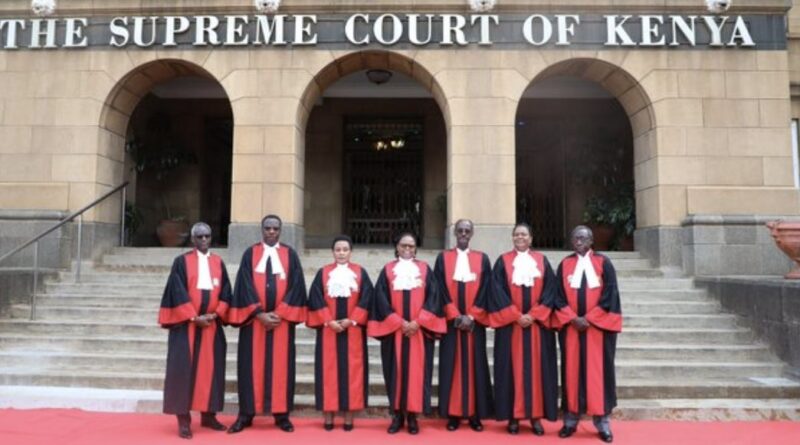Kenya’s Supreme Court Upholds Equal Inheritance Rights for Children Born Out of Wedlock Under Islamic Law
In a landmark ruling delivered on June 30, 2025, the Supreme Court of Kenya affirmed that all children—regardless of whether they were born in or out of wedlock—have equal rights to inherit from their parents’ estates.
The ruling marks a significant victory for children’s rights and constitutional equality, reinforcing that religious or cultural practices cannot override the principles of non-discrimination and fairness enshrined in the Kenyan Constitution.
The case in question involved the estate of Salim Juma Hakeem Kitendo, a Muslim man who died intestate in 2015. The dispute was brought before the court by his widow, Fatuma Athman Abud Faraj, who challenged the inclusion of children born outside a formal Islamic marriage as rightful heirs to the estate.
Faraj argued that Islamic personal law, which applies to Muslims under Article 24(4) of the Constitution, did not recognize children born out of wedlock as legitimate beneficiaries.
However, the Supreme Court, led by Chief Justice Martha Koome, dismissed the appeal and upheld the decision made earlier by the Court of Appeal. The court ruled that excluding children from inheritance based solely on the marital status of their parents was unconstitutional.
“The Judgment of the Court of Appeal delivered on 10th November, 2023 is hereby affirmed and specifically the finding that the children of the appellant as well as the 1st and 3rd respondents are beneficiaries and/or dependents of the estate of the deceased,” read part of the judgment delivered by Chief Justice Martha Koome.
It emphasized that Articles 27 and 53(2) of the Constitution guarantee equality before the law and prioritize the best interests of the child, respectively. The justices found that denying inheritance on these grounds was neither reasonable nor justifiable in an open and democratic society.
The ruling directly benefits several children from the deceased’s extended family: four children of the appellant, three of the first respondent, and one son of the third respondent, all of whom are now recognized as legal beneficiaries of the estate. The court has remitted the case back to the High Court in Mombasa for the determination of how the estate should be equitably distributed in line with the new ruling.
Legal experts and children’s rights advocates have lauded the decision, noting that it sets a progressive precedent for the interpretation of succession laws in Kenya. It aligns with international human rights standards and strengthens the legal standing of children born out of wedlock, many of whom have historically been marginalized in matters of inheritance, particularly within communities where religious or customary laws dominate family affairs.
The Supreme Court’s judgment makes it unequivocally clear: constitutional protections take precedence over religious and customary norms when it comes to safeguarding the rights of children. This decision is expected to influence future succession disputes and bring Kenya closer to realizing full legal equality for all its citizens, regardless of their background or circumstances of birth.


